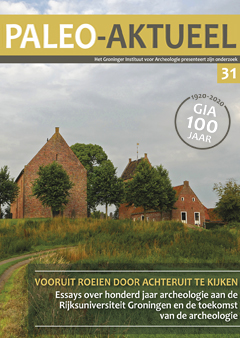Koude verrassingen. Ontwikkelingen en toekomstige mogelijkheden in de archeologie in het poolgebied
DOI:
https://doi.org/10.21827/PA.31.153-163Samenvatting
Frozen surprises. Past developments and future possibilities in Arctic Archaeology. The North Pole region has a rich and interesting history. People migrated to the area to hunt and to collect raw materials or to explore new sailing routes and the North Pole itself. They experienced how hard it was to survive under arctic circumstances. People from the Netherlands played a role in the exploration and exploitation of the area, and the Dutch archives have rich collections of maps and other polar documentation. In 1970, the Arctic Centre of the University of Groningen was established to study the history and languages of the Arctic. In 1978, the research of the Arctic Centre was extended into archaeological research. This research was executed for four reasons: First, because polar activities are not always documented, archaeological research may fill in the gaps in polar history. Second, because of low temperatures and isolation, objects and traces are very well preserved and therefore may contain much additional information. Third, due to slow degradation of material, much palaeo-biological material is well preserved, producing very interesting ecological information. Finally, the collection of written and printed material gives unique possibilities for comparison.

